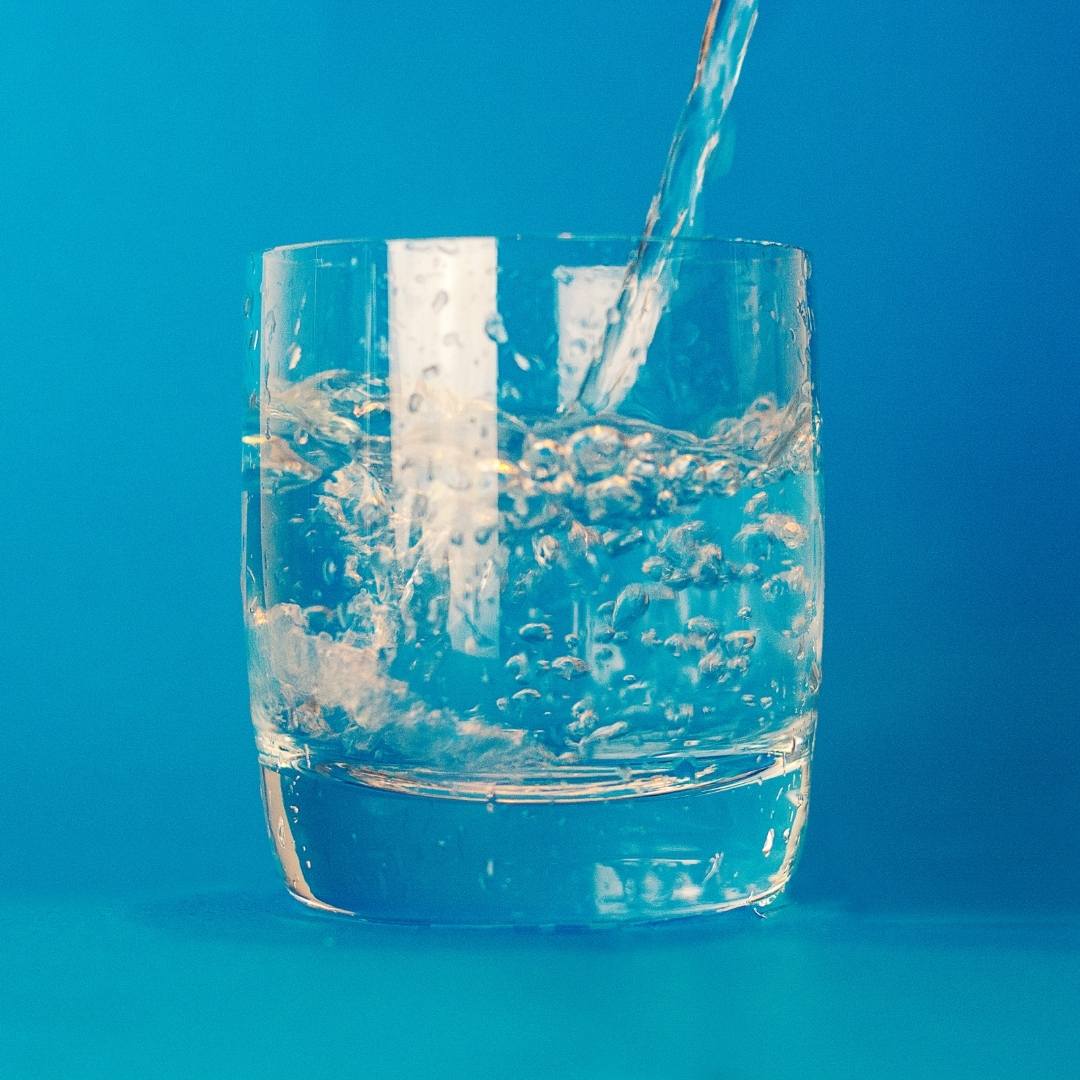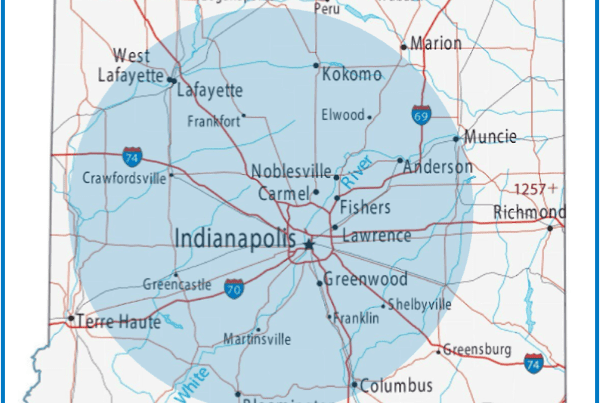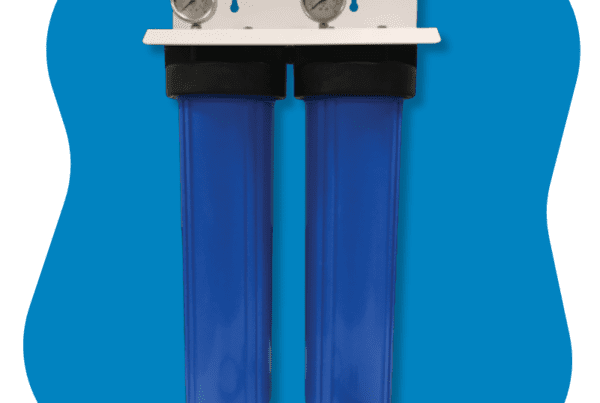Can Hard Water Impact Your Health?
Did you know that 85% of the water supply in the United States is hard water? This, however, does not mean we’ve been drinking and showing in hard water all this time. In fact, most people in America opt to use water softeners.
If you don’t use water softeners, you might be wondering how harmful hard water could be and if there’s any potential health impact to consuming hard water. Fortunately, that’s just the subject we’ll be exploring in this article. As you continue reading, you’ll learn all about what hard water is, how it differs from soft water, and what its health effects might be.
Before we take a look at any water solutions, let’s first take a closer look at what hard water is exactly.
What Is Hard Water
Many people have heard the terms “hard water” and “soft water” but not many really know what those terms mean. After all, both hard and soft water look the same. Even so, there are important differences you should be aware of.
In short, hard water is the concentration of calcium and magnesium dissolved in the water. The more calcium and magnesium is in the water, the “harder” the water is. Following this same logic, soft water contains a much lower concentration of these minerals but has a higher concentration of sodium, also known as salt.
Hard water may also have sulfates and chlorides. The concentration of minerals in water depends on where the water comes from. For example, if you take a sample of groundwater that has been sitting around with rocks such as dolomite and limestone, the water will have very high levels of calcium and magnesium.
On the other hand, if you get water from a purer source such as glaciers, this water will be very soft in comparison. This is because it has not been in contact with mineral-rich rocks. To be precise, hard water is “hard” when it contains 120 parts per million (ppm) of calcium.
Water softeners, as the name suggests, function to soften hard water by filtering much of the calcium and magnesium. Why is water softening important? We will soon explore what health effects hard water has on the body, but hard water can also be damaging and inconvenient to your home.
For example, deposits of calcium and magnesium in the water can clog your home’s water pipes over time. This can lead to a weaker water flow and also make your boiler less efficient at heating. With time, the minerals in hard water can corrode water pipes as well.
 The Difference Between Hard and Soft Water
The Difference Between Hard and Soft Water
While we’ve already seen a little bit about the difference between hard water vs soft water, there’s a lot more to explore. There are also more ways than one to tell the difference and most of those ways go beyond using a water hardness test.
You can easily tell if you’re dealing with hard water when you wash your hands or take clean dishes out of the dishwasher. You’ve more than likely washed your hands with soap at a sink and still felt that your hands were sticky. This is no fault of your hand-washing abilities but rather a problem with hard water.
The Symptoms of Hard Water
You may feel that your hands are sticky after washing with soap because of how the soap reacts with the minerals in the hard water. Specifically, the way the calcium in the water interacts with soap creates soap scum which is why your hands might feel sticky. You can get rid of the soap scum on your hands by rinsing a bit longer with hot water, but it is undoubtedly a frustrating aspect of hard water.
You can also tell if you’re dealing with hard water when taking dishes out of the dishwasher. Your silverware and glasses, despite being clean, will often exhibit water spots. These spots are formed when calcium residue is left behind by hard water even when the water dissipates.
These same spots and stains can even show up on your clothes if you wash them in hard water. Over time, this can lead to your clothes becoming ruined much faster than they should be.
On the other hand, when dealing with soft water, you won’t have to put up with any of these problems. Your dishes will be spotless as will your clothes, your home’s water pressure will be ideal, and you won’t need to waste time cleaning soap residue off your hands. The only downside to soft water is that it can taste slightly saltier than hard water, but this extra sodium content in soft water is often unnoticeable.
By this point, you’ve seen what hard water can do to your home, your dishes, and even your clothes. If hard water can do damage to all these different items, what can it do to your body? From here, we’ll be taking a look at the potential negative health effects hard water can cause if you put off using a hard water filter for your home.
The Negative Health Effects of Hard Water on The Body
For a long time, it was thought the consumption of hard water might come with adverse health effects, but since no studies had yet been conducted, many people put these concerns aside. After all, water is water to most people and it can help keep you hydrated.
However, in more recent years, studies have finally been conducted on the consumption of hard water and how hard water can affect the body. It has been found that not only drinking hard water can be bad for you, but it might even link to the development of certain diseases and conditions.
People with sensitive skin are likely already aware of the adverse effects of hard water. This is because of how hard water can alter the natural pH balance of our skin. Our skin’s pH levels are important for protecting our skin against bacteria that could potentially cause infections.
When we wash our skin with hard water, this pH barrier is compromised, leaving our skin less healthy than before. When washing with hard water for a long period of time, the skin tends to become dry and even cracked. People who suffer from eczema often feel these effects more intensely than others because their skin is already dry and sensitive.
Because of hard water’s effects on the skin, people with eczema may find their condition worsening when they wash with hard water. Hard water can affect the hair as well and leave your scalp dry. Hard water can, with time, turn the hair dry and brittle.
If people can’t afford a water softener, they may opt for moisturizers for their skin and hair. However, it is always best to treat the root of the problem. This is especially true when it comes to drinking water.
 Health Effects of Drinking Hard Water
Health Effects of Drinking Hard Water
For the majority of people, drinking hard water will not cause any serious health effects. In fact, some say that since hard water contains a variety of minerals, it might even have health benefits. However, this does not mean that the consumption of hard water is completely safe.
This is because the consumption of high concentrations of minerals can be bad for you. For example, the high magnesium content in hard water could contribute to bouts of diarrhea and even problems with kidney function. Since the kidneys are responsible for excreting magnesium and other minerals from the body, if their function is compromised, minerals could start building up in the body.
Hard water has also been linked to an increased prevalence of atopic eczema and dermatitis. This link likely exists because of how hard water’s increased levels of calcium and chlorine can damage the skin, especially from a young age. Both dermatitis and eczema are uncomfortable skin conditions that include itchy and sometimes painful skin as well as skin that is sensitive to rash development, peeling, bumps, and cracks.
There may even be a link between the consumption of hard water and the development of kidney stones. This is because kidney stones are often composed of calcium and magnesium. Since drinking hard water will increase the body’s calcium and magnesium content, these extra minerals may be formed into kidney stones in some people.
Some studies show that by consuming soft water instead of hard, the prevalence of kidney stones may decrease.
Understanding the Health Effects of Hard Water
You now know all about hard water, the difference between hard vs soft water, and the possible health effects of hard water. You also know how a water softener can save you from the various problems hard water can cause.
To learn more about this topic, contact us here.




